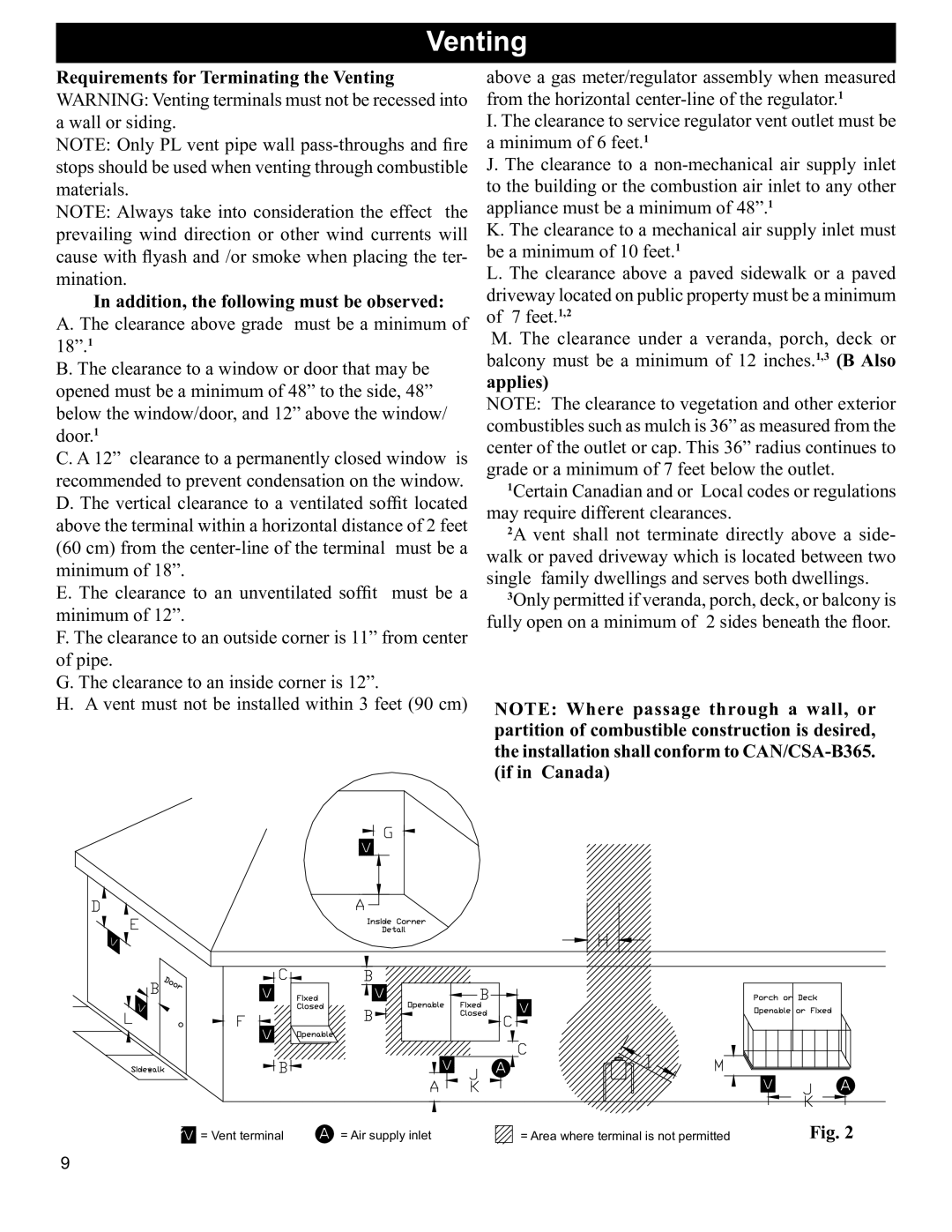BH 105 specifications
Hearth and Home Technologies BH 105 is a modern and versatile fireplace that combines functionality and aesthetic appeal. Designed for both residential and commercial spaces, it brings the warmth of a traditional fireplace with the convenience of contemporary technology. One of the standout features of the BH 105 is its impressive heating capacity, efficiently warming larger areas while maintaining a cozy atmosphere.The BH 105 uses advanced combustion technology, which not only maximizes heat output but also minimizes emissions, making it an eco-friendly choice for homeowners. This fireplace achieves a commendable efficiency rating, ensuring that most of the heat generated is utilized effectively, reducing energy costs and environmental impact.
Aesthetically, the BH 105 offers a sleek and contemporary design that can seamlessly blend with any decor. The large viewing area features tempered glass, providing unobstructed views of the mesmerizing flames. This visual aspect enhances the ambiance of any room, making it a focal point in the home. The fireplace is available in various finishes, allowing homeowners to choose a style that complements their personal taste and existing interior designs.
User experience is a priority in the BH 105’s design. It includes features such as an easy-to-use control panel and a programmable thermostat that allows for precise temperature regulation. This user-friendly interface enables individuals to set their desired comfort levels with ease.
The BH 105 also comes equipped with safety features like an automatic shut-off system, ensuring peace of mind for users, especially in households with children or pets. The durability of the materials used in its construction ensures that the fireplace can withstand the rigors of regular use while maintaining its aesthetic charm.
In summary, Hearth and Home Technologies BH 105 is a perfect embodiment of modern fireplace technology, offering high efficiency, stunning design, and user-friendly features. Whether for heating a living room or creating a cozy atmosphere in a commercial setting, the BH 105 stands out as an exceptional choice for discerning individuals seeking warmth without compromising on style.

